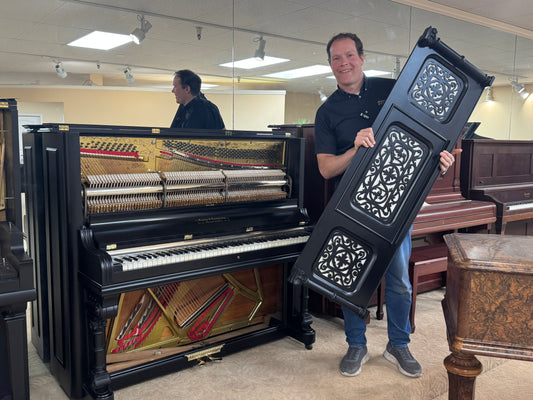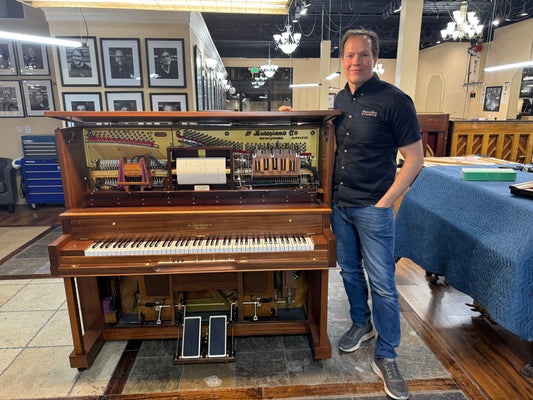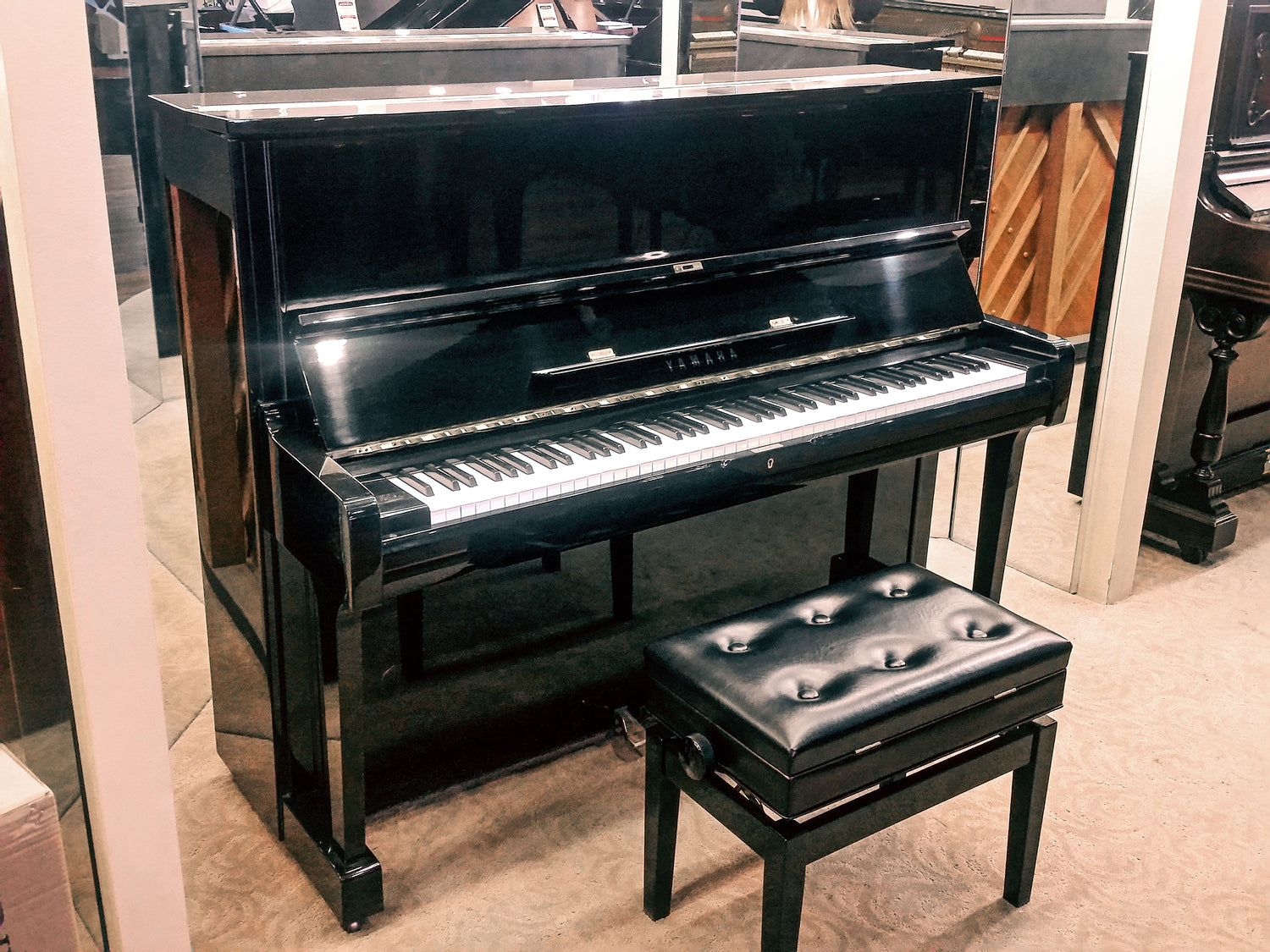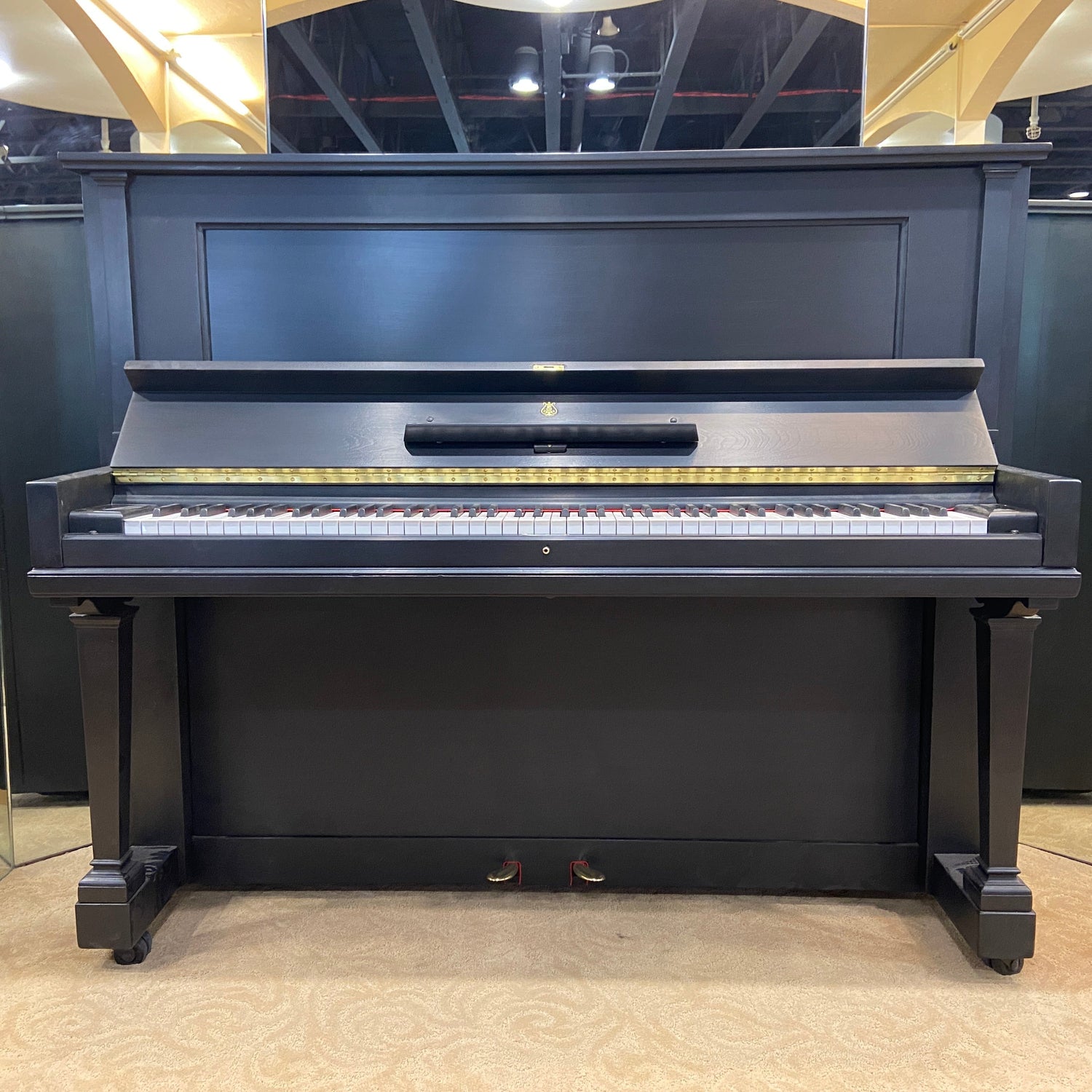
7 Ways to Help Your Child Find JOY in Piano Practice
Karmel LarsonShare
As a faith-centered Conservatory, we like to focus on a different "virtue" or character trait every month that piano lessons can help students develop. (We call them our "Virtues for Virtuosos"—gotta love the alliteration!) This month's virtue is JOY! We try to talk about the virtue of the month at lessons whenever there's an opportunity. But just like the music they practice, we know students will learn these virtues best when they're practiced at home, too. So here are 7 ways to add more joy to piano practice. Maybe they'll spill over into other areas, too!
1. Practice consistently!
People—and kids especially—like to do what they're good at. While practicing isn't always fun in and of itself, the feeling of accomplishment that comes from it is awesome! When students practice at home, they do well in their lessons. When they have good lessons, they want to keep practicing at home... you get the picture! And trust me, "cramming" doesn't work for piano lessons. Practicing EVERY day (even if it's short sometimes) will go a long way towards enjoying piano.
2. Find music the student likes.
This one has to be kind of a team effort between parents, teacher, and student. Fun music should be part of every piano lesson! That could mean classical, jazz, pop—whatever the student really enJOYs playing. This could even mean having music that they don't work on in lessons but is just for fun at home. As a kid, some of my favorite Christmas and birthday gifts were songbooks from pop artists or movies I liked. They were easy, so after I did my "regular" piano practice, I could just play through those books to relax and enjoy the music.
3. Recognize accomplishments, both big and small.
Progress is harder to see on a daily basis. As a parent, you can help your child recognize the awesome things they are learning! Congratulate your child when they pass off a difficult song, finish a level of method books, or have a great performance in a recital. Setting goals with rewards is a great way to do this, and there are lots of ways to do it. When students feel that their parents are proud of them and like to listen to them play, they enjoy piano practice more.
4. Find ways to make music with others.
As a pianist, this is hard. We spend most of our practice time alone at our instrument. Whenever I get the chance to play or perform with others, I take it! Duets or other ensembles with siblings or friends are an easy way to make friends, too. Performing with others includes its own set of challenges, but there can also be an amazing energy when you're really in sync with your fellow musicians!
5. Share your music with the people around you!
This is something I learned from my parents growing up—if you're feeling down, serve someone else and you'll feel better almost right away. Music has such power to affect people. If you have the opportunity to brighten someone else's day by playing the piano, DO IT. It's worth it every time! This is why we love our quarterly Community Outreach recitals. We like to play at nursing homes and rehab centers to share music with those who might not get to experience it as often. Their smiles and gratitude are so motivating to keep practicing until the next performance.
6. Be a little silly sometimes.
Piano practice doesn't always have to be serious. If your child gets stuck on something, try to find a different, creative way to practice it. You could even do it wrong on purpose! Breaking up the tension and laughing a little will help your child keep going. Experiment to find what works for you, even if it seems a little silly.
7. Remember where music comes from.
Joy can mean lots of different things, but one of the best for me is knowing that I'm doing what God wants me to do by developing my talent. When I remember to express gratitude to Him for the gift of music, practicing is easier, I'm more motivated to work hard, and I remember how much He loves me! So when the going gets tough, say a little prayer of gratitude and remember to find JOY in the journey.











